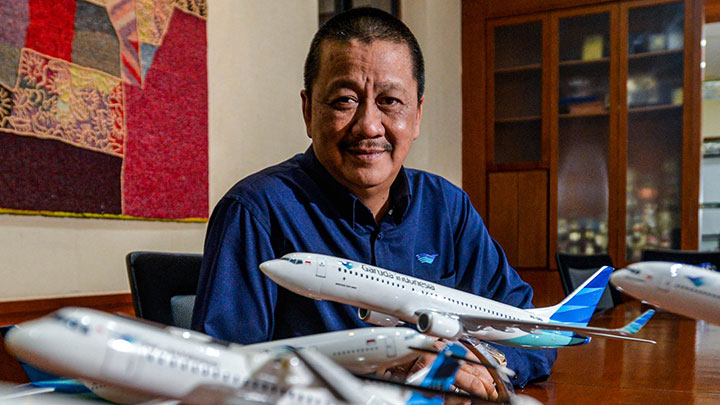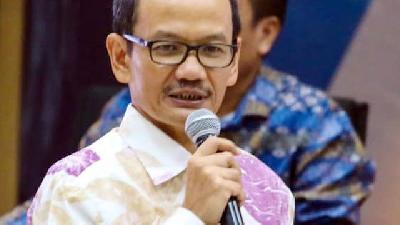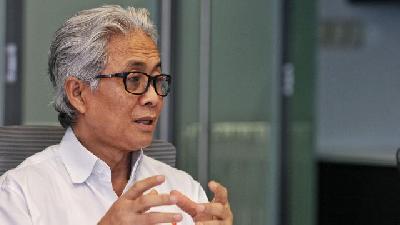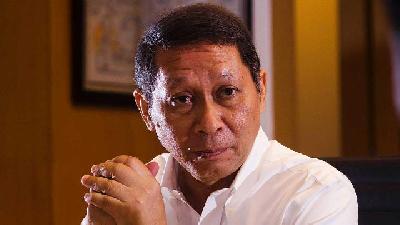I’m Not a Magician
Monday, February 15, 2021
Garuda Indonesia CEO Irfan Setiaputra inherited a plethora of problems when he joined the national flag carrier last year. Now, if he is not exploring maneuvers to turn the financially-distressed company around amid dwindling number of passengers or taking care of the thorny plane rental contract, Irfan shepherds Garuda as a pivotal airline in distributing Covid-19 vaccines. Armed with extensive experience in leading various companies, Irfan Setiaputra pulls out all the stops to restore Garuda Indonesia’s image as a bona fide airline.
arsip tempo : 171408086590.

AS he steers the national flag carrier Garuda Indonesia through the devastating effects of the pandemic, Irfan Setiaputra faces another major problem, a knotty negotiation with Nordic Aviation Capital on the cessation of the aircraft lease contract that ended up with him making a unilateral decision. “We grounded and returned the planes. I decided it unilaterally. ‘See you in court,’” said Irfan during a special interview
...
Subscribe to continue reading.
We craft news with stories.
 For the benefits of subscribing to Digital Tempo, See More
For the benefits of subscribing to Digital Tempo, See More











